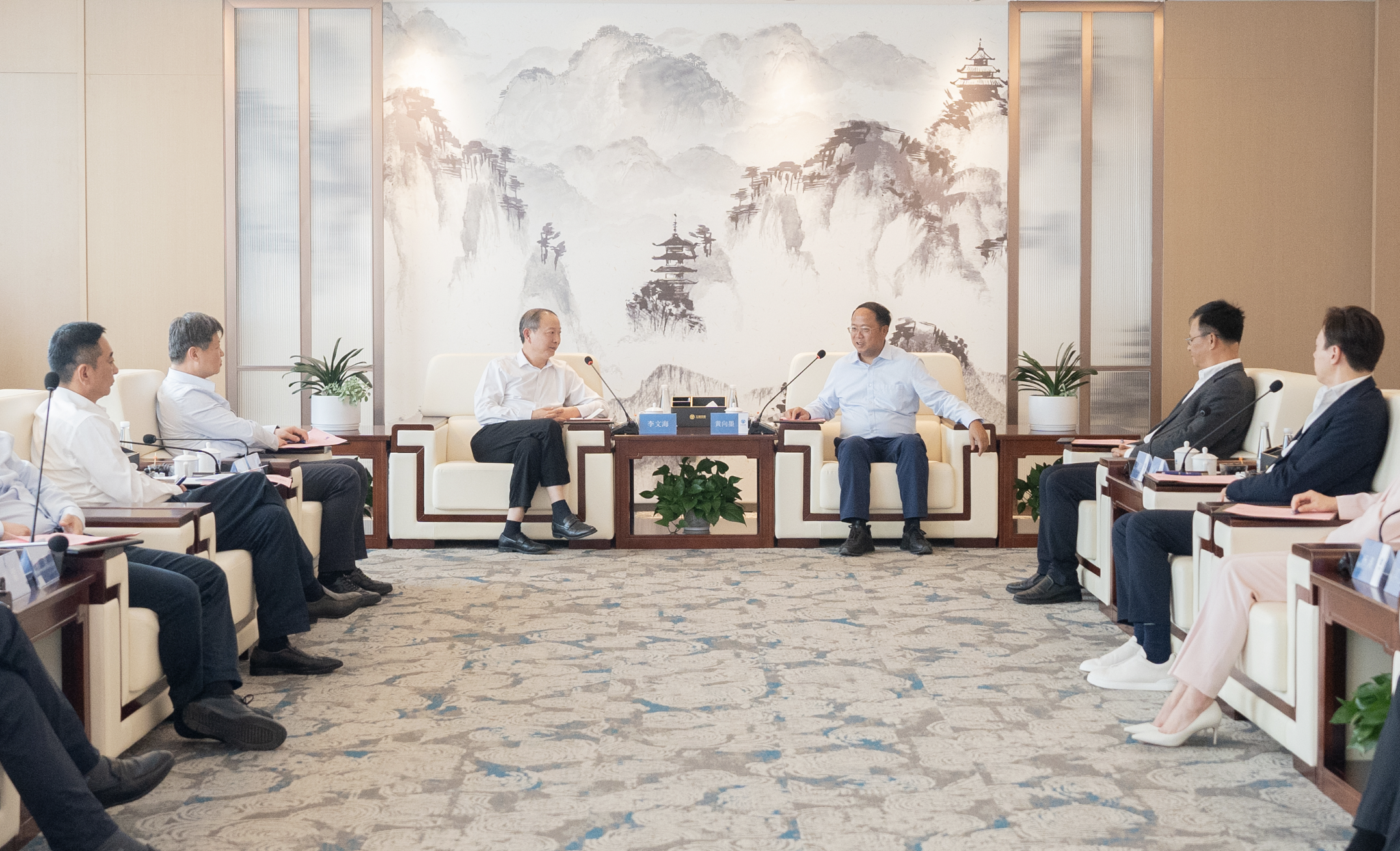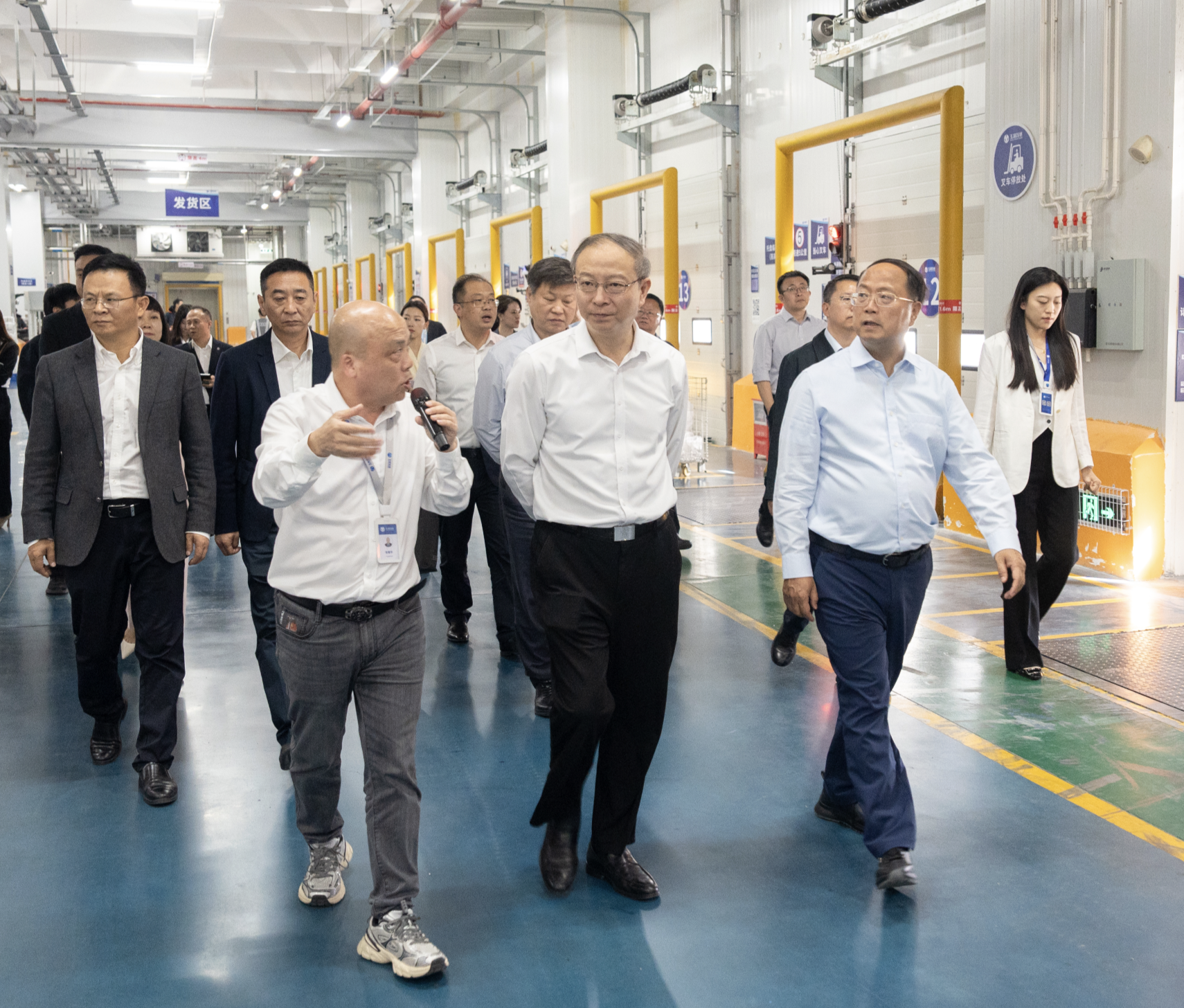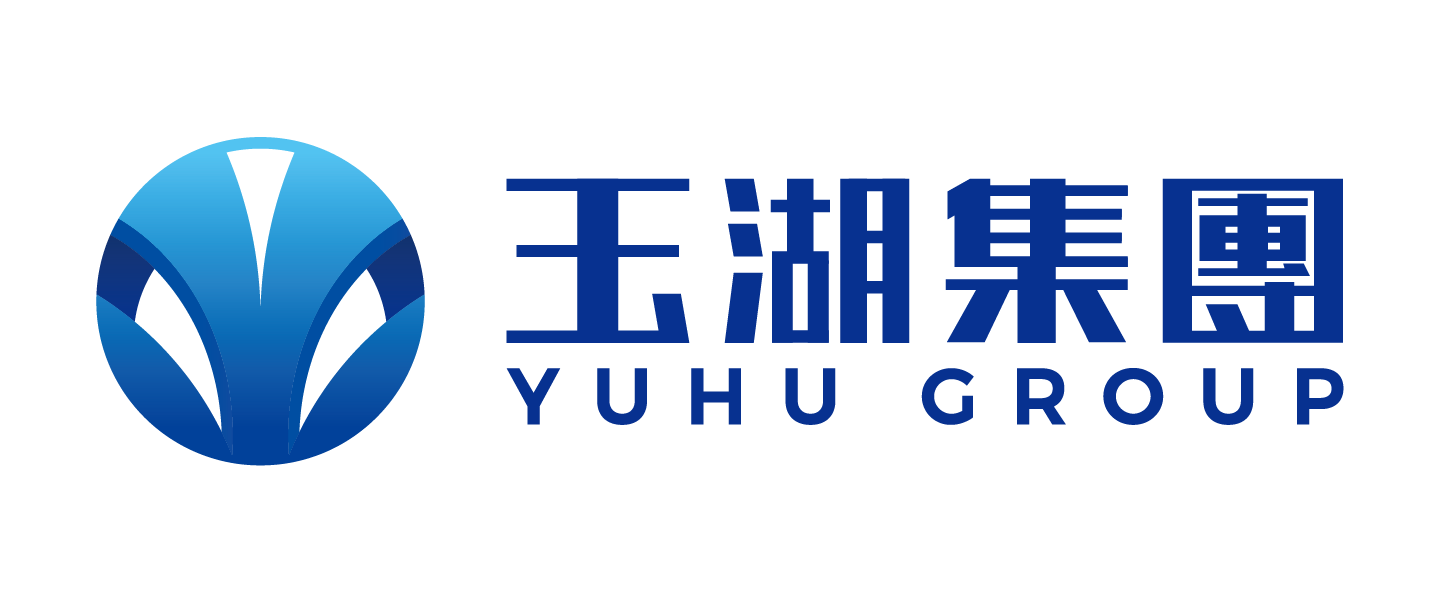On April 14, Tianjin Vice Mayor Li Wenhai led a delegation to visit the Yuhu Cold Chain (Guangzhou) Trading Centre and held talks with Hong Kong Yuhu Group's Chairman Huang Xiangmo. Since the groundbreaking of the Tianjin cold chain project on March 18 (see previous report), Tianjin's government at all levels has paid close attention and actively implemented comprehensive service measures for major projects. During this meeting, both parties exchanged views on the future development of the Tianjin project and joint efforts to promote transformation and upgrading of the cold chain industry.

Vice Mayor Li and his delegation inspected the high-standard cold chain facilities and operations at the Guangzhou park, gaining detailed insights into the integrated online-offline trading system, supply chain financial service innovations, and other key operations. They observed demonstrations of the smart park management system, comprehensive supply chain management system, and food safety traceability system among other digital applications.
During the talks, Chairman Huang welcomed Vice Mayor Li's delegation and introduced Yuhu Group's development history and Yuhu Cold Chain's strategic layout across China. He explained that Yuhu Cold Chain is building a modern cold chain supply service system that connects production to consumption with deep integration of online and offline operations. Through asset-heavy investments, they are establishing a nationwide network of offline trading centers to support online trade matching and transactions. Simultaneously, Yuhu Cold Chain continually enhances food supply chain safety and operational efficiency through standardized, digitalized, and intelligent operational models.
Huang pointed out that Tianjin port handles a large proportion of frozen product imports in China, with leading port services and efficient customs clearance. The Yuhu Cold Chain Tianjin project was established "for trade," aiming to increase local settlement rates for frozen product imports and exports while providing statistical data to the government. Huang expressed that with the strong support from Tianjin's municipal and Dongli district governments, the Tianjin project has progressed efficiently, exceeding expectations and demonstrating "Tianjin speed" as well as the city's first-class business environment and government service capabilities.

Vice Mayor Li highly commended Yuhu Cold Chain's significant achievements in advancing digital transformation of cold chain logistics. He stated that Tianjin's decision to establish the Yuhu Cold Chain project was absolutely correct. Since the project's initiation in July 2024, Mayor Zhang has personally supervised its progress, and Tianjin has included Yuhu Cold Chain as one of the key projects for port-industry-city integrated development in the city's 2025 government work report.
He emphasized that while Tianjin currently has excess cold storage capacity, Yuhu Cold Chain's international-standard cold storage facilities and innovative "dual-drive" online-offline transaction service model are unique, meeting high-end and diverse market demands, connecting the entire industry chain, and reducing costs while increasing efficiency for upstream and downstream partners, giving them absolute market competitiveness.
Li mentioned that as a nationally important commercial logistics hub and backbone cold chain logistics base, Tianjin enjoys both locational and policy advantages. Last year, the People's Bank of China and other entities jointly issued "Opinions on Financial Support for Tianjin's High-Quality Development," creating a favorable financial environment and enhancing capabilities to serve the real economy. These policy supports will benefit Yuhu Cold Chain, providing strong guarantees for its development in Tianjin.
He expressed hope that Yuhu Cold Chain would deepen cooperation with Tianjin in areas such as industrial chain innovation and new business model cultivation, working together to enhance regional cold chain logistics modernization and promote Tianjin's high-quality development. Vice Mayor Li instructed relevant Tianjin departments, especially Dongli District, to provide proactive services, accelerate the construction of surrounding supporting facilities and roads, fulfill government responsibilities, and ensure the project's timely and high-quality completion and early operation.
As a leading domestic cold chain logistics enterprise, Yuhu Cold Chain has established major industrial projects in eight cities including Guangzhou, Chengdu, and Wuhan, building a nationwide cold chain logistics network with a total construction area exceeding 2.6 million square meters and a total storage capacity of 1.35 million tons, making it the largest cluster of cold chain projects under construction in China. The Tianjin project, as Yuhu Cold Chain's first primary trading center in northern China, will replicate the successful experiences of the Guangzhou and Chengdu parks. Leveraging Tianjin Port's location and industrial advantages, it will create a cold chain food distribution hub serving the Beijing-Tianjin-Hebei region and radiating to the "three northern" regions (Northeast, Northwest, and North China), promoting deep integration of port, industry and city while providing important support for Tianjin's development as an international consumption center city.
The Yuhu Cold Chain (Tianjin) Trading Center is located on the northern side of Junliangcheng North Station in Dongli District. It includes planned functional areas for trade distribution, warehouse cold storage, high-end food experience, and bulk commodity auction. The construction area exceeds 500,000 square meters with a cold storage capacity of approximately 300,000 tons. The annual transaction value is expected to exceed 30 billion yuan once fully operational. The project will leverage Dongli District's dual advantages of "airport + seaport" to create a modern cold chain park integrating cold chain trading, warehouse logistics, processing services, trade settlement, smart park features, and office supporting facilities.


